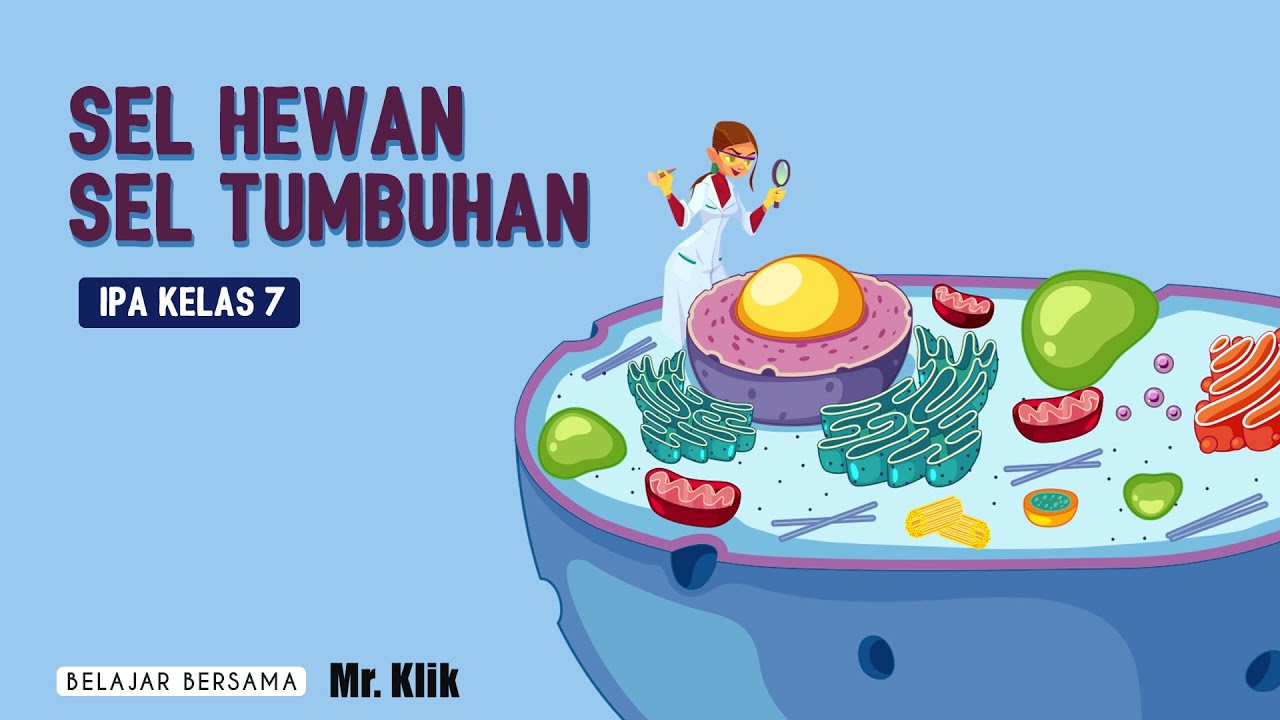Are We Actually Controlled by Mitochondria? Mindblowing New Discoveries
Summary
TLDRThis video explores recent discoveries about mitochondria, the tiny organelles in our cells once considered just the 'powerhouse' of the cell. The script delves into their surprising social behaviors, ability to communicate, and their influence on physical and mental health. It discusses how mitochondria play crucial roles in energy production, immune response, cognitive function, and even reproduction. The video also touches on the fascinating evolutionary history of mitochondria and their deep connection to human health, emphasizing the importance of maintaining healthy mitochondria through exercise, nutrition, and sunlight.
Takeaways
- 😀 Mitochondria are far more than just the 'Powerhouse of the cell.' Recent research shows they play a crucial role in regulating our health, mental state, and longevity.
- 😀 Mitochondria evolved from ancient bacteria that formed a symbiotic relationship with cells, contributing not only to energy production but also influencing cell behavior and communication.
- 😀 Modern research reveals that mitochondria can communicate with each other and across tissues, influencing the whole organism's survival and lifespan.
- 😀 Mitochondria play a role in regulating hormones, immune responses, and even cell development, showcasing their influence far beyond energy production.
- 😀 Emotional states like mood can directly impact mitochondrial function, with studies showing that mood influences immune system mitochondria in measurable ways.
- 😀 Mitochondria are inherited only from the mother, with paternal mitochondria being eliminated in most organisms, including humans.
- 😀 A recent study discovered that delaying the elimination of paternal mitochondria in worms led to impaired energy production, cognitive function, and overall health, suggesting a potential link to human mitochondrial disorders.
- 😀 Mitochondrial DNA can sometimes merge with human DNA, creating 'nuclear mitochondrial DNA' (nDNA), which may contribute to aging and functional decline if it accumulates over time.
- 😀 Stress and other external factors can accelerate the production of nDNA, contributing to cell dysfunction and potentially shortening lifespan.
- 😀 Healthy mitochondria are linked to better overall health, with lifestyle factors like exercise, good nutrition, and exposure to sunlight supporting mitochondrial function and longevity.
Q & A
What is the common misconception about mitochondria?
-Mitochondria are often referred to simply as the 'Powerhouse of the cell,' but this view overlooks their much broader role. Recent discoveries suggest that mitochondria have more control over the cell's functions than previously thought, influencing everything from energy production to immune response, mood, and mental health.
How did the video game Parasite Eve influence the speaker's interest in mitochondria?
-The speaker was intrigued by the concept of mitochondria becoming self-aware and communicating with each other, as depicted in the video game Parasite Eve. The game, based on a novel and film, explores an evolution of mitochondria that leads to the creation of a perfect life form, alongside a lot of violence, sparking the speaker's curiosity about their real-world functions.
What role do microbes play in our bodies, especially in relation to mitochondria?
-There are over 2200 species of microbes inside our bodies, outnumbering our physical cells. Mitochondria are believed to have originated from a type of bacteria that became endosymbiotic within our cells, forming a mutually beneficial relationship. Over billions of years, these bacteria have maintained some independence and influence over our cellular functions.
What is endosymbiosis and how does it relate to mitochondria?
-Endosymbiosis is the mutualistic relationship between two different species where both benefit. In the case of mitochondria, a bacterium likely invaded or was engulfed by a cell and became symbiotic, providing the host cell with energy in exchange for protection. This relationship has lasted for over two billion years.
How do mitochondria communicate with each other and influence the body?
-Mitochondria can communicate with each other and with other organelles within the cell, including the nucleus. This communication involves the synchronization of behavior, group coordination, and signaling that influences various bodily functions, such as immune responses, hormone production, and cell development.
How do mitochondria influence mental and physical health?
-Mitochondria have a significant impact on both physical and mental health. Their role in energy production is crucial for cell function, and their involvement in processes like hormone production and apoptosis (programmed cell death) also affects mental health. Research has shown that mitochondrial dysfunction can contribute to various neurological and psychiatric disorders.
Why do we inherit mitochondria only from our mothers?
-Mitochondria are inherited maternally because the paternal mitochondria in sperm are typically eliminated during fertilization. This process ensures that the offspring receives healthier mitochondria from the mother, which are vital for cellular energy production and overall health.
What happens when paternal mitochondria are passed on, and how can it affect health?
-Although extremely rare, some cases have documented the inheritance of paternal mitochondria. When this happens, it can lead to severe health problems, including muscle weakness, breathing difficulties, and cognitive issues. Some studies suggest that certain nutrients like vitamin K2 might help reverse some of these effects.
What is the connection between stress and mitochondrial health?
-Stress can negatively affect mitochondrial health by increasing the production of 'nuclear mitochondrial elements' (NEMs), which are integrated into our DNA. These NEMs can contribute to aging and functional decline. Stress seems to accelerate the production of these elements, which can be detrimental to cellular and overall health.
What is the significance of mitochondrial DNA in the context of aging and longevity?
-Mitochondrial DNA plays a crucial role in aging and longevity. Accumulation of mutations or damage to mitochondrial DNA can accelerate aging and lead to various health conditions. Recent studies suggest that maintaining mitochondrial health through exercise, good nutrition, and stress management might help promote longevity.
Outlines

此内容仅限付费用户访问。 请升级后访问。
立即升级Mindmap

此内容仅限付费用户访问。 请升级后访问。
立即升级Keywords

此内容仅限付费用户访问。 请升级后访问。
立即升级Highlights

此内容仅限付费用户访问。 请升级后访问。
立即升级Transcripts

此内容仅限付费用户访问。 请升级后访问。
立即升级浏览更多相关视频
5.0 / 5 (0 votes)






